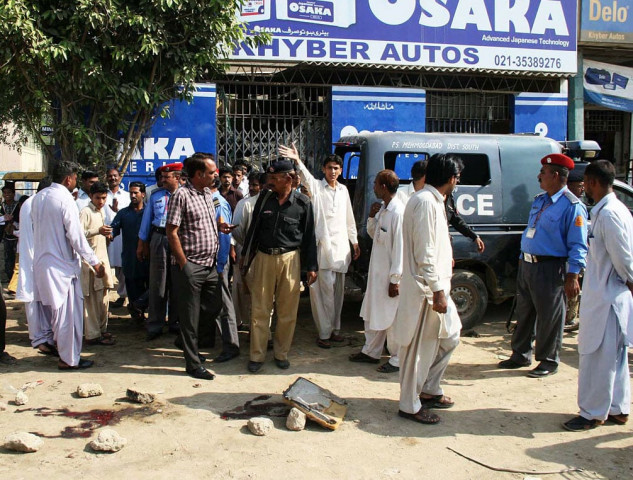Violence in Karachi
Judging by happenings in Karachi, it is clear that the Rangers or police present everywhere can do little.

The tit-for-tat style targeted killings are in many ways reminiscent of the murders which shook Punjab through the mid- and late- 1990s, with the death of members of one sect met with that of the other in a continuous cycle. PHOTO: ONLINE
We have already seen a dangerous pattern of death erupt in Karachi. In what seems like retaliation for the death of five Shias in the city the previous day, seven Sunni men were gunned down on November 5. Six were associated with the Ahle Sunnat Wal Jamaat, the new name for the banned, extremist Sipah-e-Sahaba Pakistan. The seventh victim was a seminary student. The tit-for-tat style targeted killings are in many ways reminiscent of the murders which shook Punjab through the mid- and late- 1990s, with the death of members of one sect met with that of the other in a continuous cycle. The killings in Karachi are a reminder of our failure to tackle these groups and instead allow them to spread out across the country.
There is reason to be apprehensive, too, of a possible acceleration in sectarian violence. The volatility of Karachi is, of course, well established, and it has in the past been the site of the most horrendous Ashura massacres. Tension remains high in other parts of the country, too. While security has been deployed everywhere, judging by happenings in Karachi, it is clear that the Rangers or police present everywhere can do little. The intelligence agencies, too, seem to have failed and as a result, we have no way of knowing just how much blood we will see spilled over the coming month, with the monster of sectarianism once again rearing up its head as bodies tumble as an outcome of the senseless hatred that drives it forward across a country badly in need of harmony and peace.
Published in The Express Tribune, November 7th, 2013.
Like Opinion & Editorial on Facebook, follow @ETOpEd on Twitter to receive all updates on all our daily pieces.















COMMENTS
Comments are moderated and generally will be posted if they are on-topic and not abusive.
For more information, please see our Comments FAQ